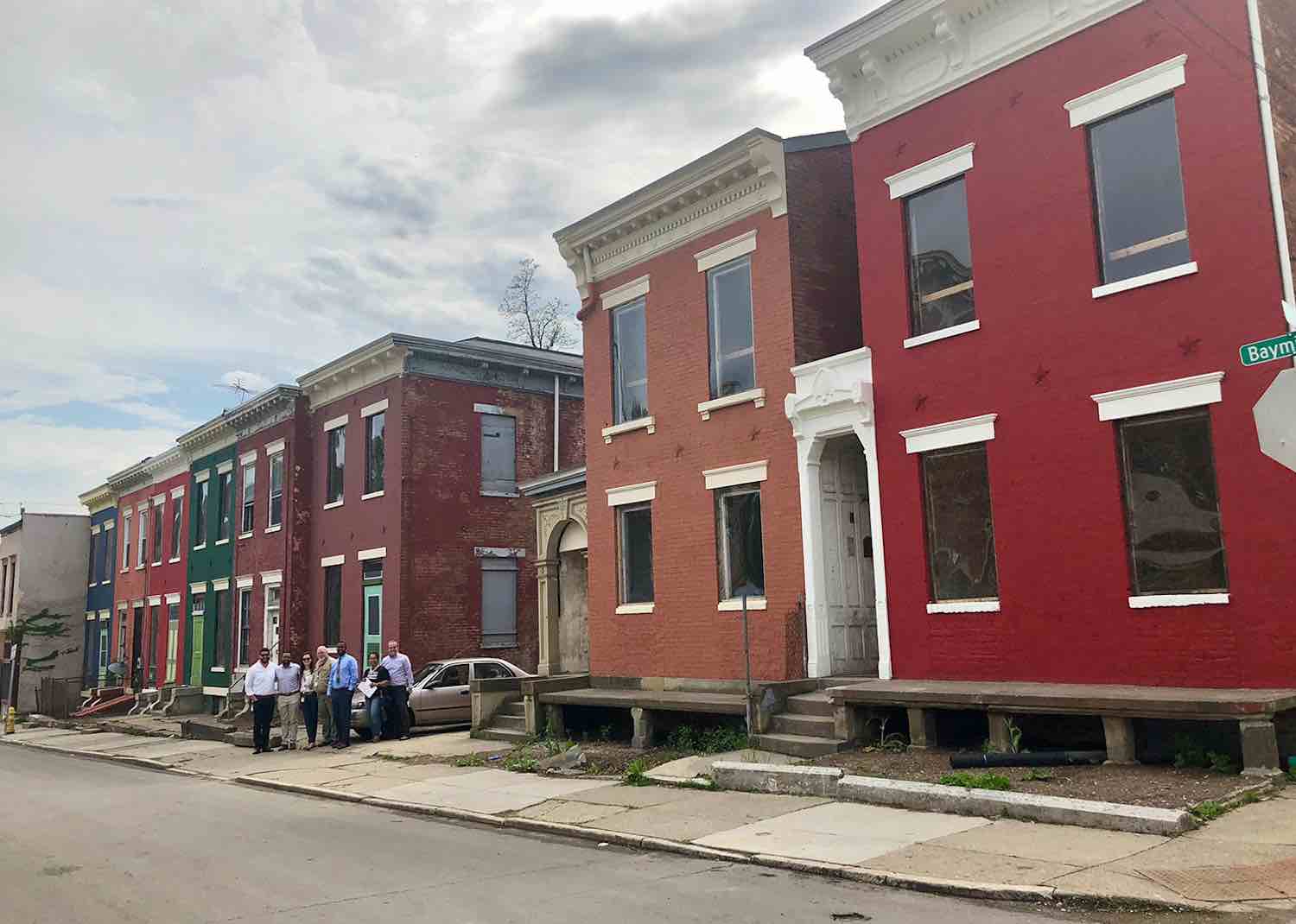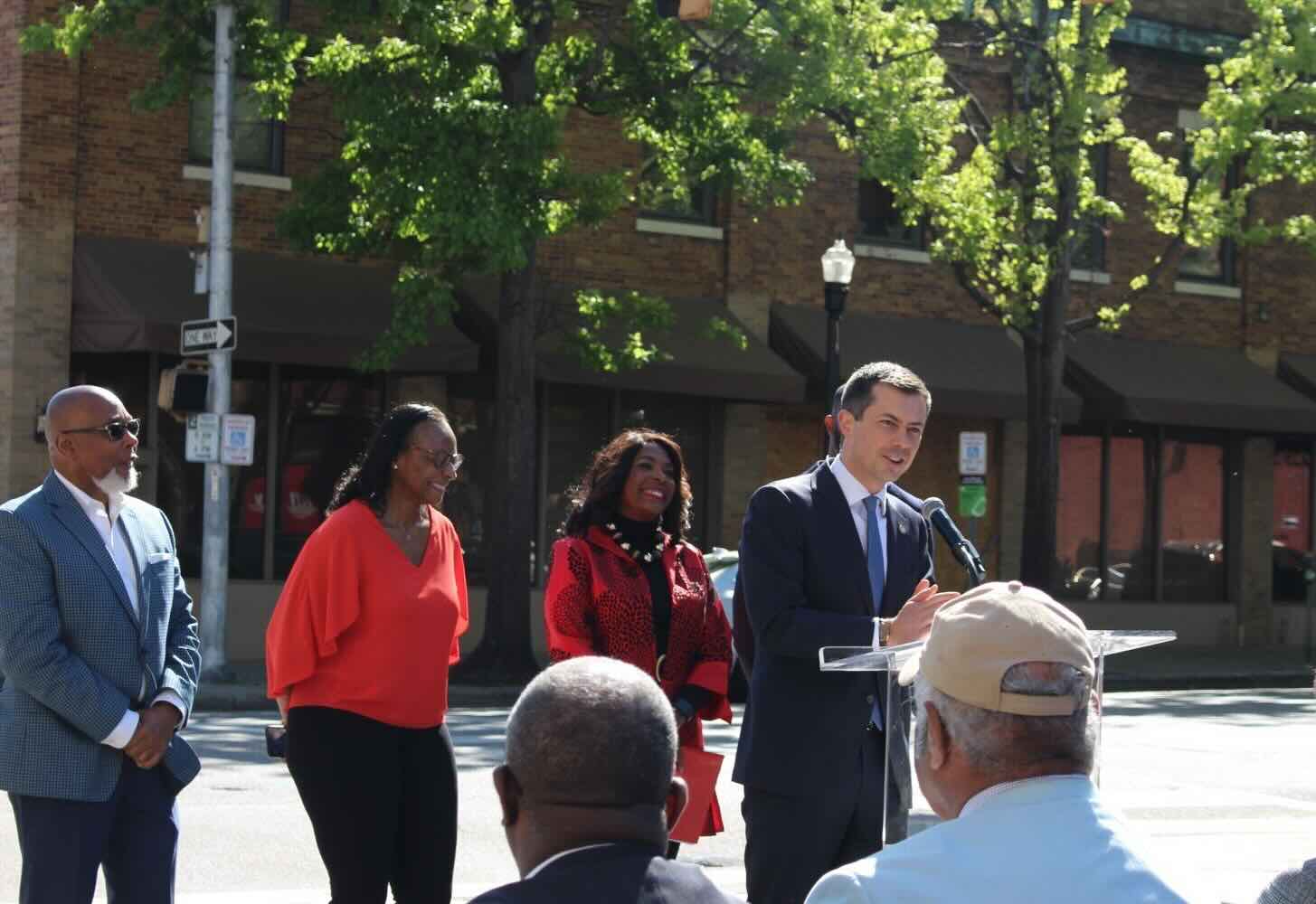Driving through Cincinnati, Ohio’s Bond Hill neighborhood, Tony Jones pointed out the street his grandmother used to live on, and the corner where he lost a friend to street violence.
Then, Jones directed a group of investors’ attention to a strip of Main Street. The storefronts were recently renovated by The Port of Greater Cincinnati Development Authority, aka The Port, to bring commerce and opportunity back to the Bond Hill Business District.
Jones, a local real estate developer, explained the complicated dynamics of community reinvestment.
“When you see ‘big government’ coming into your neighborhood, you become afraid that something is about to be taken away from you. Thanks to my relationship with The Port, I can tell my neighbors and our community leaders what is going on and how we can get involved.”
Market maker
In mid-July, The Port partnered with the Lincoln Institute of Land Policy to host an Investor Challenge in Cincinnati. Local and national investors gathered to learn about the capital needed to scale The Port’s industrial and neighborhood revitalization work as well as its efforts to reduce Cincinnati’s racial wealth gap through the transformation and inclusive ownership of real estate.
Capital providers from financial institutions, impact investing firms, and foundations had the opportunity to engage with Cincinnati Mayor Aftab Pureval. They toured the city’s rapidly-changing West End neighborhood, a potential Advanced Manufacturing District, and a number of capital-starved, segregated communities where The Port is committed to catalyzing revitalization by working alongside Jones and other underrepresented entrepreneurs.
Jones is one of the many Black real estate developers The Port is partnering with to reinvest in and rebuild the disenfranchised, and often isolated, pockets of Cincinnati. After serving in the military and successfully revitalizing single-family homes in Indianapolis, Jones and his wife returned home with the mission of improving the community in which they grew up.
Through his small business, eXp Realty, Jones is helping to lead revitalization efforts and lift up other small business owners by intentionally hiring contractors from Bond Hill for his projects.
“With resources, young people’s attention turns from tearing things down to building their city up,” Jones said, embodying in one statement The Port’s theory of change and its vision for Cincinnati’s future.
In every sense of the term, The Port is a market maker. The quasi-governmental agency deploys its full suite of capabilities and assets – public financing, owned real estate, and private-sector expertise – to jumpstart economic activity and create a glidepath for responsible, follow-on investment in the city’s most undercapitalized neighborhoods.
These days, The Port is leveraging its position and resources to advance inclusive and equitable economic growth; employing a multi-pronged approach for utilizing real estate as a vehicle to close the local racial wealth gap.
“The racial income disparity in Cincinnati is amongst the highest in the nation due, in part, to a legacy of redlining which created highly segregated communities and the loss of more than 100,000 manufacturing jobs over five decades,” said Laura Brunner, The Port’s president and CEO.
“But, in an unprecedented move by a public agency, The Port is clawing affordably priced homes back from the grips of predatory institutional landlords, creating opportunities for homeownership, bringing manufacturing back to the city, and prioritizing minority-owned businesses in all of our efforts.”
Proof points
Over the two-day event, it became clear that the City of Cincinnati, like many cities throughout the nation, is at a pivotal moment facing two diametrically opposed future outcomes. On one hand, local leaders are optimistic about leveraging American Rescue Plan Act and Bipartisan Infrastructure Law dollars to address systemic inequities that have long-plagued the prospect of comprehensive economic growth.
At the same time, unprecedented increases in housing costs and an ongoing recession coupled with the prospect of failing to secure competitive federal funding threaten to plunge struggling residents and communities deeper into poverty and isolation.
Speaking directly to the current moment and need for urgency, The Port shared that the only thing encumbering its inclusive growth strategy was access to new and increased sources of capital.
“We have successful proof points that indicate we can reduce the racial wealth gap by inclusively transforming and expanding ownership of real estate. Now, we need more capital to accelerate our work and scale our impact,” said Brunner.
This notion of accelerating the implementation of community and economic development solutions was the impetus for Cincinnati’s Investor Challenge.
Over the past two years, Lincoln has coalesced a network of financial institutions, impact investors, Housing Finance Agencies, and Development Finance Agencies (including The Port) through its Accelerating Community Investment initiative. Through this community of practice, public finance professionals from across the nation are able to share expertise and structure cross-sector partnerships that drive capital in ways that put residents – and the hopes and dreams of their neighborhoods – at the center of public and private investment decisions.
The Cincinnati Investor Challenge was the second in a series of investor engagements that Lincoln hopes to do with members of the community investment initiative throughout the nation.
“Investors are looking for opportunities to participate alongside deals that have the support of local government and – equally as important – that demonstrate connection to resident and community priorities,” said R.J. McGrail, a senior fellow at Lincoln.
Investors around the table in Cincinnati said the city’s investment of more than $9 million in The Port’s strategy signaled local leadership’s ‘skin in the game,’” he said.
“We are priming private investors to view public funds as first-in capital.”
Rachel Reilly is the founder of Aces & Archers, a strategic advisory firm focused on addressing socioeconomic inequality by reimagining traditional models for economic growth and private investing.











